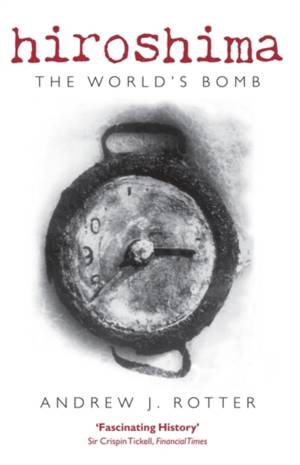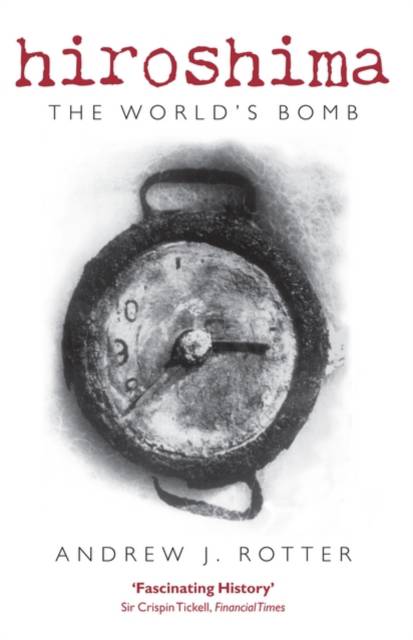
- Retrait gratuit dans votre magasin Club
- 7.000.000 titres dans notre catalogue
- Payer en toute sécurité
- Toujours un magasin près de chez vous
- Retrait gratuit dans votre magasin Club
- 7.000.0000 titres dans notre catalogue
- Payer en toute sécurité
- Toujours un magasin près de chez vous
40,45 €
+ 80 points
Description
The US decision to drop an atomic bomb on Hiroshima remains one of the most controversial events of the twentieth century. But as this fascinating new history shows, the bomb dropped by an American pilot that hot August morning was in many ways the world's bomb, in both a technological and a moral sense. And it was the world that would have to face its consequences, strategically, diplomatically, and culturally, in the years ahead. In this fast-paced and insightful narrative, Andrew J. Rotter tells the international story behind the development of the atom bomb, ranging from the global crises that led to the Second World War to the largely unavailing attempts to control the spread of nuclear weapons and the evolution of the nuclear arms race after the war had ended. He details the growth in the 1930s and '40s of a world-wide community of scientists dedicated to developing a weapon that could undo the evil in Nazi Germany, and he describes the harnessing of their efforts by the US wartime government. Rotter also sheds light on the political and strategic decisions that led to the bombing itself, the impact of the bomb on Hiroshima and the endgame of the Pacific War, the effects of the bombing and the bomb on society and culture, and the state of all things nuclear in the early 21st-century world.
Spécifications
Parties prenantes
- Auteur(s) :
- Editeur:
Contenu
- Nombre de pages :
- 384
- Langue:
- Anglais
- Collection :
Caractéristiques
- EAN:
- 9780199569762
- Date de parution :
- 25-10-09
- Format:
- Livre broché
- Format numérique:
- Trade paperback (VS)
- Dimensions :
- 127 mm x 193 mm
- Poids :
- 294 g

Les avis
Nous publions uniquement les avis qui respectent les conditions requises. Consultez nos conditions pour les avis.






